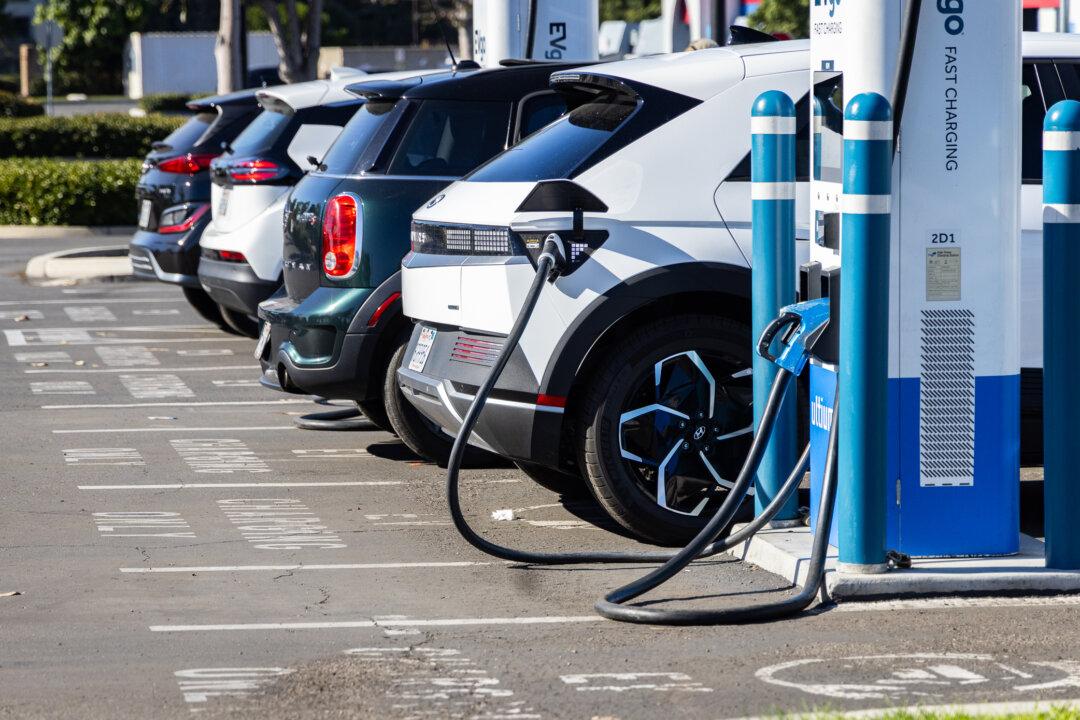A federal program that granted funds to states to build a national electric vehicle (EV) charging infrastructure has been stopped, according to the Federal Highway Administration (FHWA).
Department of Transportation Halts Funding for Electric Vehicle Charging Infrastructure
An estimated $1.77 billion in funds for building the charging network have been allocated for fiscal years 2025 and 2026.

An electric vehicle charging station in Irvine, Calif., on Nov. 28, 2023. John Fredricks/The Epoch Times




